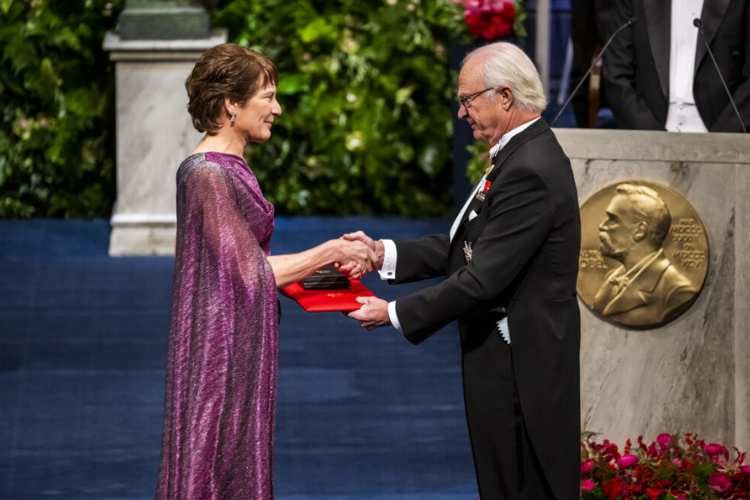Renowned Nobel laureate Carolyn Bertozzi, Ph.D., has joined Acepodia as its Chief Scientific Adviser, marking a significant development in the biotech’s mission to revolutionize cell therapy for patients dealing with solid tumors and hematologic cancers. In an interview, Bertozzi expressed her belief that Acepodia’s initiatives will have a transformative impact on the cell therapy landscape.
Acepodia’s pioneering platform stems from scientific research originating in Bertozzi’s laboratory at the University of California, Berkeley, where Acepodia’s CEO, Dr. Sonny Hsiao, was once her student. Dr. Hsiao co-founded Acepodia and holds multiple roles within the company, including CEO, Chief Scientific Officer, and President.
At the core of Acepodia’s approach is the integration of antibody-cell conjugation (ACC) for the development of allogeneic gamma delta T-cell therapies. This ACC platform is grounded in “click chemistry,” a groundbreaking technique for live cell applications, which earned Bertozzi the Nobel Prize in Chemistry in 2022. The methodology utilises bioorthogonal reactions that function within living organisms without disrupting normal cellular processes. Bertozzi’s work has significantly advanced these chemical reactions, enabling more effective exploration of cells, monitoring of biological processes, and enhancement of disease targeting, particularly in the context of cancer.
Bertozzi will play a pivotal role in leading Acepodia’s scientific advisory board and guiding the company in its mission to transform cell therapy development for cancer care. The technology relies on live-cell-compatible chemistry to link tumor-targeting antibodies to immune cells, creating novel therapies with heightened binding capabilities against tumors expressing low levels of tumor antigens.
Acepodia’s approach has the potential to enhance the potency of immune cells and engage with cancers by unlocking multiple receptor signaling pathways, potentially surmounting the challenges that have historically hindered cell therapies’ effectiveness against solid tumors.
The technology also offers the flexibility to combine various immune cells and antibodies, generating distinct specificities with diverse immune cell functionalities, which addresses scalability issues that have previously plagued cell therapy approaches.
In June, Acepodia secured $100 million in a series D funding round, bolstering its efforts to bring effective and affordable cell therapies to a broader patient population grappling with solid tumors and hematologic cancers. The biotech currently oversees four programs, including an off-the-shelf gamma delta T-cell therapy known as ACE1831 for non-Hodgkin lymphoma patients and ACE2016 for those with EGFR-expressing solid tumors.
A phase 1 study to determine the maximum tolerated dose of ACE1831 for up to 42 U.S. patients commenced in the summer, with promising signs of minimal serious side effects typically associated with allogeneic cell therapy treatments, such as graft-versus-host disease or cytokine release syndrome.
Meanwhile, ACE2016 remains in the preclinical development phase, and Acepodia plans to engage with the FDA in October, aiming to file an Investigational New Drug (IND) application next year.
Notably, Acepodia, which has a presence in both California and Taiwan, recently made its debut on the Taiwanese stock exchange in August, opting for this move over a US listing due to the current investment landscape, with only a limited number of biotech IPOs occurring in the United States this year.





























